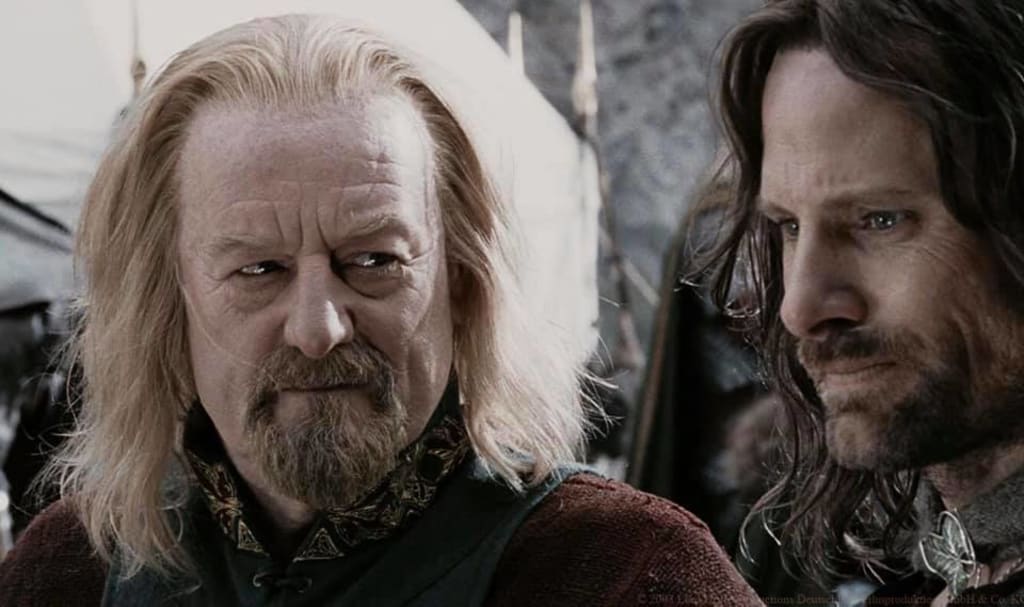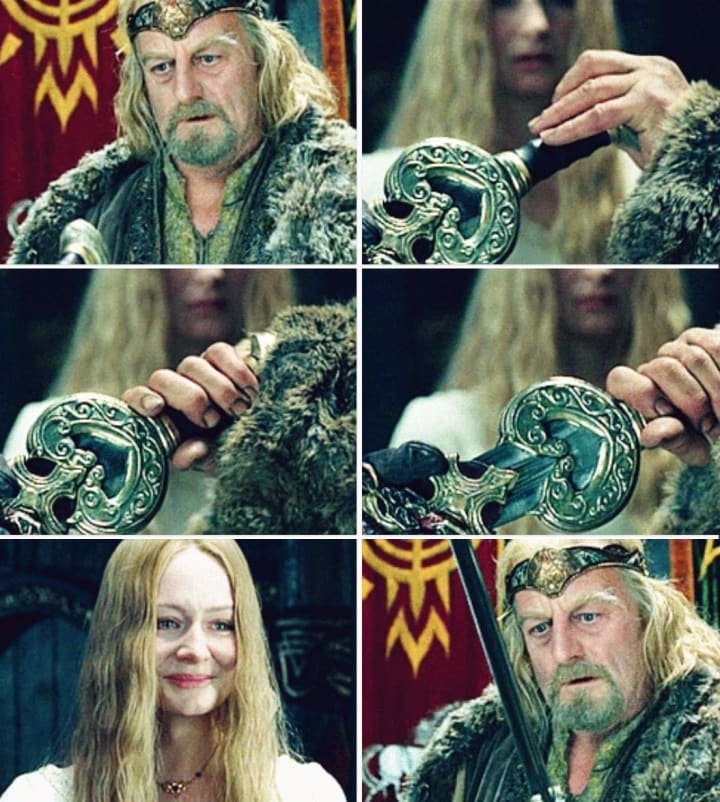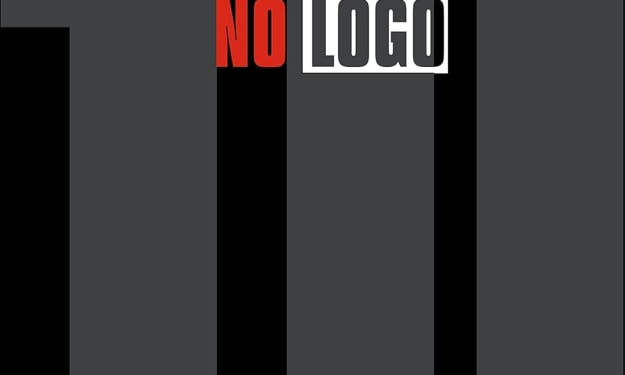Remembering Bernard Hill
Depicting King Théoden of Rohan, this Lord of the Rings actor will be missed by many

It was a sad day today to check my Tolkien group chat, which consists of a few book club friends and nerds, and see the shared news that Bernard Hill had died. It was not how I wanted to start my summer break from school. (I'm still grading Finals and submitting grades to the registrar.)
Hill was born in Manchester in December 1944 to a family of Catholic miners, graduating in 1970 from Manchester Polytechnic School of Drama. He took a number of small roles until landing a spot in The Ghost and the Darkness alongside Val Kilmer and Michael Douglass.
His biggest role after that was undoubtedly Captain Edward Smith of the Titanic in James Cameron's film. It is telling, perhaps, that his role as a sacrificial leader in that film perhaps set him up to play an even more sacrificial leader, an authority figure in command whose job is to protect those under his care. (The actual Edward Smith was a little more reckless, and so we won't address that here, alas.) The film itself set Hill's name toward the top with 14 Oscar nominations and 11 wins, tying with Ben-Hur for the most Academy Awards in history.
Undoubtedly, however, his role as King Théoden is the one for which he'll be most remembered. I think that's fitting. There's so much to this character that makes him an inspiration.
Many think my Horse of Rohan tattoo in my Tolkien sleeve is for Éowyn, and, while it is, it's actually more for Théoden. Both of them, Éomer included even, had tremendous odds to overcome during Saruman's hold over their country. Second only to Gondor as one of the greatest realms of Man in Middle-earth, Rohan was a country that should have been one of riches and hearth and horsemanship. Instead, it resembled more of a graveyard when Gandalf and the Three Hunters arrive in Edoras, with Gimli even commenting, "You'd find more cheer in a graveyard."
One look at their king says it all.
Théoden is a shadow only of the strength he once had. Held under Saruman's control through Grima, he can do little more than sit on his throne and grunt a few noises. He seemingly cares for nothing and can be motivated to do nothing outside of Saruman's will. His family, his guard, his advisors, his entire citizen population in Edoras and beyond, are all bereft of hope, essentially. Théodred, his son, was even killed in a raid, and he does not go to him.
Of course, Gandalf the White arrives and frees him. Not the "Stormcrow" any longer, as Théoden/Saruman calls him. "I will draw you out, Saruman, as poison is drawn from a wound," he says. You all know the scene. It's epic. And it's supposed to be. The wonder on Théoden's face as the curse is lifted and he returns to his former self is a miracle. "Dark have been my dreams of late," he tells Gandalf, who just smiles and gestures for Grima to hand the king his sword, Herugrim.

The moment when Aragorn reintroduces him to his people on the steps of Edoras is monumental because of the way Théoden looks at him in command--without a word--that he, too, must bow. He knew who Aragorn was. He knew Gondor along with all the hard past between them. But he worked with Aragorn and respected him.
It's difficult to imagine the guilt and remorse and pure shame Théoden must have felt after his recovery. To have let his kingdom fall so far and feel responsible. In the film, Saruman calls him a "lesser son of greater sires," but in the novel of The Two Towers, Théoden himself makes that claim:
'We will have peace,' said Théoden at last thickly and with an effort. Several of the Riders cried out gladly.... 'Yes...' he said, now in a clear voice, 'we will have peace, when you and all your works have perished — and the works of your dark master to whom you would deliver us. You are a liar, Saruman, and a corrupter of men's hearts. You hold out your hand to me, and I perceive only a finger of the claw of Mordor.... Even if your war on me was just as it was not... even so, what will you say of your torches in Westfold and the children that lie dead there? And they hewed Háma's body before the gates of the Hornburg, after he was dead. When you hang from a gibbet at your window for the sport of your own crows, I will have peace with you and Orthanc.... A lesser son of great sires am I, but I do not need to lick your fingers. Turn elsewhither. But I fear your voice has lost its charm.'
The Riders gazed up at Théoden like men startled out of a dream. Harsh as an old raven's their master's voice sounded in their ears after the music of Saruman. But Saruman for a while was beside himself with wrath. He leaned over the rail as if he would smite the King with his staff. To some suddenly it seemed that they saw a snake coiling itself to strike.
In that moment, Théoden reclaims the wrong that Saruman dealt him and his people. He stands up in a way he could not before--literally--while trapped under the weight of Saruman's power. In his own throne chair. A cruelty of irony to represent his powerlessness in every way. Not anymore.
Théoden teaches us what it's like to recover from trauma.
He cries after his son's funeral while being comforted by Gandalf. "No parent should have to bury their own child," he says. And no doubt he suffered with the question of if I'd only been strong enough to break free of Saruman, perhaps he wouldn't have died...
Imagine the deep depression. The imposter syndrome. The anxiety. The desire to just give up. He's ruined things enough already. What help could he be? His people are better off without him. And the world has changed so much. "What can man do against such reckless hate?" he asks.

Théoden sends his people to Helm's Deep because he's concerned first and foremost for their safety. He's not willing to risk another battle, even though Aragorn tells him, "war is upon you whether you would risk it or not." But Théoden presses back: "What would you have me do? Look at my men. Their courage hangs by a thread. If this is to be our end, then I would have them make such an end as to be worthy of remembrance."
There isn't much hope in that moment, but they're going to go down fighting. "We are not so lucky in our friends as you," he reminds Aragorn. It is much the same stance as Théoden makes when he rallies the troops to Gondor. They do not expect to win. "We will meet them in battle nonetheless," he tells his men. He breaks the pattern of bitterness and bad will between the nations and chooses to do the right thing.
And he has to fight it at first. "Tell me--why should we ride to the aid of those who did not ride to ours?" he asks Aragorn. His first goal was in holding his kingdom tightly the moment he was freed from Saruman's harm. Now, he is surrendering his kingdom. He is surrendering that instinct to protect by leading them in sacrifice instead.
This world is not about hoarding any bit of safety you can gain; it is about acting toward the aid of others who have no safety left.
That is the model of greatness. The mark of bravery. The moral litmus test.
There's no way I can mention this scene without letting you rewatch it.
And there's no better way to scare the armies of Mordor harder than to have thousands of soldiers screaming, "DEATH!" as they prepare to charge.
And when he dies on the battlefield, crushed by Snowmane, Éowyn rescues him. The niece he believed he'd failed. "Doomed to wait upon an old man who should have loved her as a father," as he described her to Aragorn once. More guilt. Remorse for choices not taken.
But in the moment of his death, he tells Éowyn that he goes to the halls of his fathers, "in whose mighty company I shall not now be ashamed." Like Galadriel with the Ring, he's passed the test. He's at peace.
He is truly one of the great heroes of Tolkien's story, even though he's often overlooked for greater figures like Aragorn and Gandalf. He's one of my great inspirations as someone who struggles with chronic depression and anxiety. Like Théoden, the task is to do the right thing even when it seems impossible for any number of reasons.
Like Théoden, the task is to "ride now."
Thank you, Bernard Hill. Thank you for King Théoden and the brave lesson of recovery. Westu Théoden hal. Hail the victorious dead.

About the Creator
Bryana Fern
English major who never left college. Lover of Victorian novels, Ravenclaw, and Rivendell. Teaching applications at Hogwarts and Starfleet Academy still pending. Find me on Instagram @coffeenerd.writer and Twitter @bryanafern






Comments
There are no comments for this story
Be the first to respond and start the conversation.